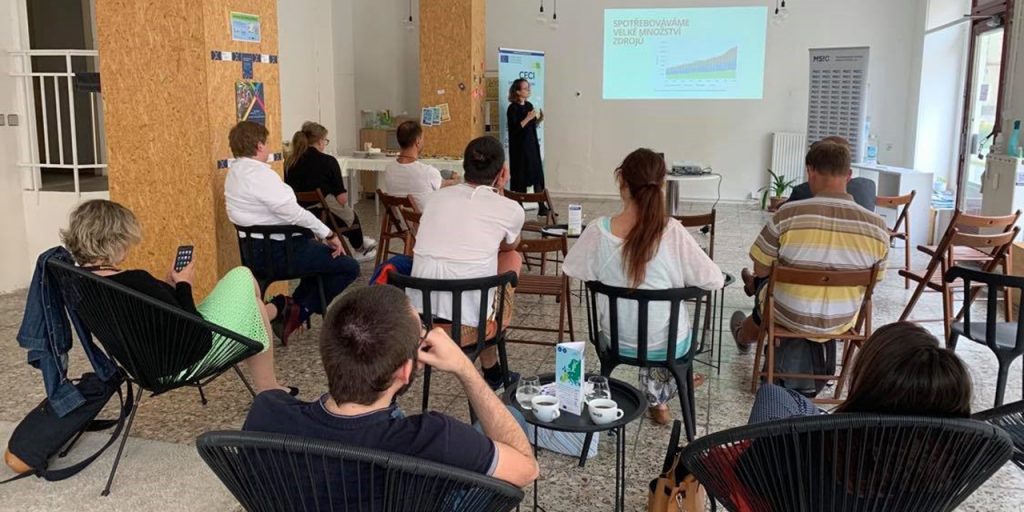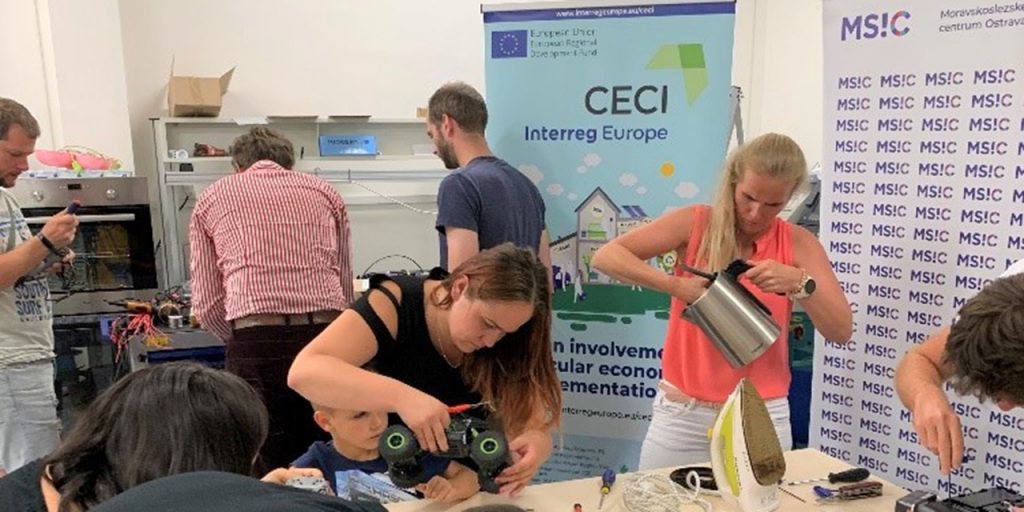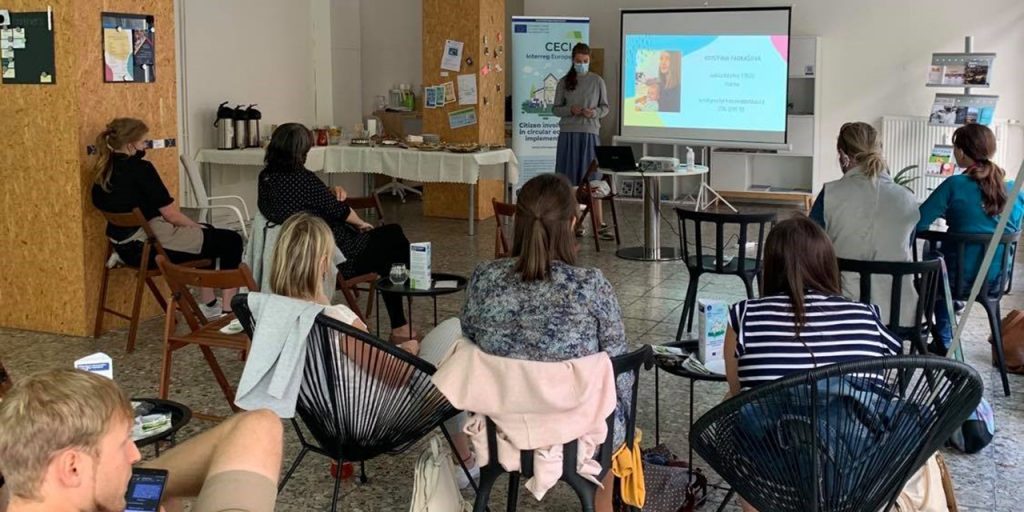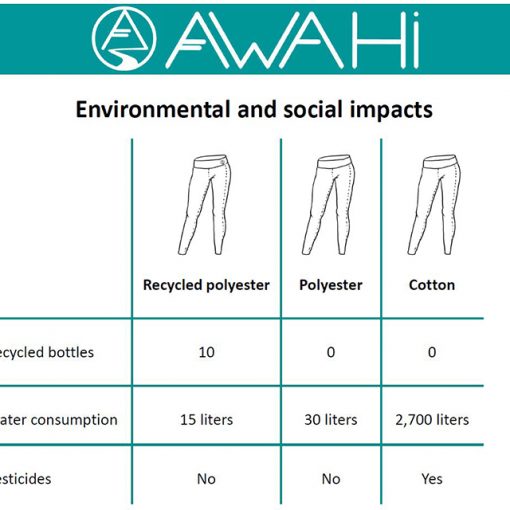The prerequisite of the circular economy transition is the systemic change that involves the public administration, businesses and citizens. Citizens behaviour and consumption patterns have the power to speed up the demand for more sustainable and circular economy products and services.
Eight partners from Finland, two from France, Czech Republic, Spain, Bulgaria, and Belgium are running a project named CECI – Citizen Involvement in Circular Economy Implementation. The project’s goal is to increase awareness and engage citizens in circular economy by adopting sustainable consumption habits and behaviours, minimizing waste and contributing to energy savings.
Series of workshops introduces the circular economy concept to citizens
One of the CECI partners, the Moravian-Silesian Innovation Centre (MSIC) Ostrava, Czech Republic, has decided to show the citizens of the region that circular economy is already hidden in many aspects of everyday life. MSIC came up with a simple concept of a workshop series held every month on various topics.
In July 2020, the first workshop entitled Circulate and Live Sustainably took place. Thanks to Barbora Kebová from the Institute of Circular Economy (INCIEN), participants learned the circular economy basics, what opportunities it brings and why we need to start thinking differently. The discussions focused on food, providing tips on how to store food to last longer and thus avoid wastage of food and preventing food waste.

In August, the second workshop called Do Not Throw and Repair – from theory to practice was organised. Citizens could bring their small appliances that no longer worked. They learned how the devices could be repaired, whether it still make sense to repair it and whether they could repair it themselves. The workshop thus supported the idea of extending the product lifecycle through repair, refurbishment, reuse or renovation. Two hairdryers, an iron, a grill, a coffee machine, a remote-control car, and a lamp were repaired directly at the workshop. MSIC considers introducing regular repair events for the public. This workshop raised interest on the national level and the MSIC representative was invited to the Czech national tv show, where CECI was in the spotlight.

The theme of the third workshop held in September was Sustainably from the Cradle – or what a baby really needs. It was dedicated to future parents who may significantly save both time and money when planning baby’s arrival. Parents formed their own opinion on what is truly necessary to possess, what can be rent or what could be skipped.

The upcoming workshop in October, carries the theme of New Life of Textiles with the lecturer Petra Nedbálková, the founder of the first Upcy Club in Ostrava. The workshop will be held in the spirit of upcycling – a transformation of no longer used objects into new objects of either the same or different value. Participants will be able to sew their own bag from an old shirt.
Citizens Education Continues
Due to a great success and a positive feedback from participants, MSIC plans to keep on organizing workshops for citizens. For the next few months, MSIC is going to show citizens how to take actions and save our water supplies, especially in households. Together with the Czech Hydrometeorological Institute (Český hydrometeorologický ústav), they will discuss the air quality in the region and how to minimize air pollution.
Writers
Klára Golabová, who works in the Moravian-Silesian Innovation Centre Ostrava as an International Cooperation Specialist. She is the CECI coordinator in the Czech Republic and the organizer of the above-mentioned workshops.
Katerina Medkova, who works as an RDI Specialist in LAB and is CECI Communication Manager. CECI is funded by Interreg Europe and the lead partner is LAB University of Applied Sciences, Finland.
Links
Link 1. Interreg Europe. 2020a. Project Summary. CECI. [Cited 1 Oct 2020]. Available at: https://www.interregeurope.eu/ceci/
Link 2. Moravian-Silesian Innovation Centre Ostrava. 2020. [Cited 1 Oct 2020]. Available at: https://www.ms-ic.cz/en/about-us/
Link 3. Interreg Europe. 2020b. Circulate and Live Sustainably! – workshop in Czech Republic. CECI. [Cited 1 Oct 2020]. Available at: https://www.interregeurope.eu/ceci/events/event/3587/circulate-and-live-sustainably-workshop-in-czech/
Link 4. Institut Cirkulární Ekonomiky. 2020. About us. [Cited 1 Oct 2020]. Available at: https://incien.org/about-us/
Link 5. Interreg Europe. 2020c. Workshop: Don’t throw away but repair it!. CECI. [Cited 1 Oct 2020]. Available at: https://www.interregeurope.eu/ceci/events/event/3657/workshop-don-t-throw-away-but-repair-it/
Link 6. Česká Televize. 2020. Beseda: Nevyhazuj, opravuj!. Dobré ráno on 7.9.2020. [Cited 1 Oct 2020]. Available at: https://www.ceskatelevize.cz/porady/10435049455-dobre-rano/420236100071086/video/787674
Link 7. Interreg Europe. 2020d. CECI Workshop: Sustainably from the cradle!. CECI. [Cited 1 Oct 2020]. Available at: https://www.interregeurope.eu/ceci/events/event/3782/ceci-workshop-sustainably-from-the-cradle/
Link 8. Interreg Europe. 2020e. CECI Workshop: New life for textile. CECI. [Cited 1 Oct 2020]. Available at: https://www.interregeurope.eu/ceci/events/event/3830/ceci-workshop-new-life-for-textile/
Link 9. Upcy Club Ostrava, z.s. 2020. Facebook page. [Cited 1 Oct 2020]. Available at: https://www.facebook.com/upcyclubostrava/
Link 10. Český hydrometeorologický ústav. 2020. Home. [Cited 1 Oct 2020]. Available at: https://portal.chmi.cz/
Pictures
Picture 1. Klára Golabová: Circulate and Live Sustainably workshop with lecturer Barbora Kebová from INCIEK on July 2020. 2020.
Picture 2. Klára Golabová: Do Not Throw Away and Repair workshop on August 2020. 2020.
Picture 3. Klára Golabová: Sustainably from the Cradle workshop with lecturer Kristýna Farkašová on September 2020. 2020.




